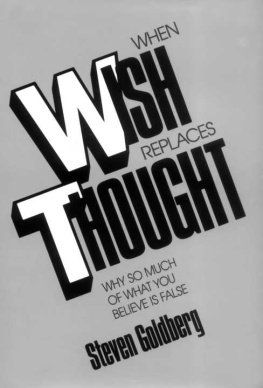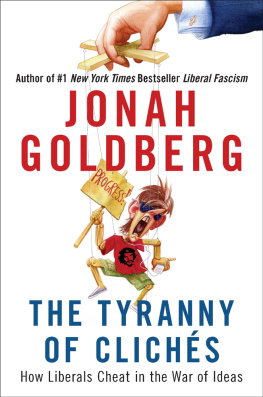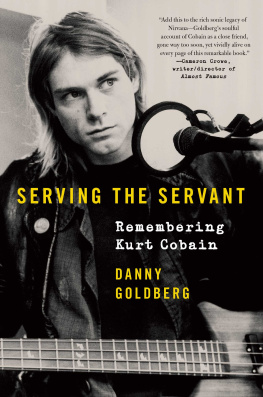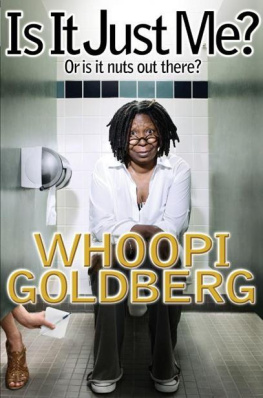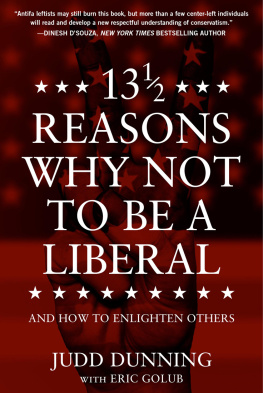Goldberg - Proud to be right: voices of the next conservative generation
Here you can read online Goldberg - Proud to be right: voices of the next conservative generation full text of the book (entire story) in english for free. Download pdf and epub, get meaning, cover and reviews about this ebook. year: 2014;2010, publisher: HarperCollins e-Books, genre: Politics. Description of the work, (preface) as well as reviews are available. Best literature library LitArk.com created for fans of good reading and offers a wide selection of genres:
Romance novel
Science fiction
Adventure
Detective
Science
History
Home and family
Prose
Art
Politics
Computer
Non-fiction
Religion
Business
Children
Humor
Choose a favorite category and find really read worthwhile books. Enjoy immersion in the world of imagination, feel the emotions of the characters or learn something new for yourself, make an fascinating discovery.

Proud to be right: voices of the next conservative generation: summary, description and annotation
We offer to read an annotation, description, summary or preface (depends on what the author of the book "Proud to be right: voices of the next conservative generation" wrote himself). If you haven't found the necessary information about the book — write in the comments, we will try to find it.
Goldberg: author's other books
Who wrote Proud to be right: voices of the next conservative generation? Find out the surname, the name of the author of the book and a list of all author's works by series.
Proud to be right: voices of the next conservative generation — read online for free the complete book (whole text) full work
Below is the text of the book, divided by pages. System saving the place of the last page read, allows you to conveniently read the book "Proud to be right: voices of the next conservative generation" online for free, without having to search again every time where you left off. Put a bookmark, and you can go to the page where you finished reading at any time.
Font size:
Interval:
Bookmark:
PROUND
 TO BE
TO BE 
RIGHT
VOICES OF THE NEXT
CONSERVATIVE GENERATION
Edited and with an Introduction by
JONAH
GOLDBERG

Did you ever wonder why the best comedians are blacks, Canadians, and Jews?
The reason certainly cant be gleaned from the usual prisms of race, class, or the other familiar, politically correct standards used to identify the Coalition of the Oppressed. Jews are pretty wealthy (they live like Episcopalians but vote like Puerto Ricans, goes the famous line), blacks on average are not. Blacks are lagging in educational achievement while Jews are ahead of the curve. Jews and blacks may have a significant history of oppression and discrimination but the most you can say about the Canadians on this score is that they merely think they do.
And that fact might point to the answer. Blacks, Canadians, and Jews are, each in their own way, insider-outsiders. They share both a fascination with and alienation from mainstream American culture Comedians from these groups tend to have mastered their own subculture as well as the majority culture (if you like, you can throw gays into this mix as well). One doesnt need to study the profiles of Chris Rock, Michael Meyers, or Jon Stewart to understand that these folks absorbed popular culture from just outside the fishbowl. Its a visitor-from-Mars thing. Most jokes are funny when they illuminate unnoticed links, connections, meanings from common experiences (Didja ever notice?, Its funny because its true!). This critical distance need not be ironic, cynical, or fodder for mockery. Indeed, it is more often a source of love and a yearning to belong.
Now, you might be wondering what any of this has to do with conservatism. And my answer would be: a lot. Ive visited scores of college campuses over the years and one of the things that you notice is that the best conservatives are, on average, simply sharper than the best liberals. Obviously, there are any number of exceptions to this. There are plenty of mule-headed Right-wingers and any number of insightful and interesting young liberals. But at the far-right tail of the bell curve, the conservative kids are just a bit, well, betterbetter at explaining and articulating their ideas, better at weighing their feelings against the facts, better at sticking to their principles despite pressure from both their peers and their professors.
I think the reason for this is that, like blacks, Jews, and Canadians, young conservativesat least on college campusesmust master their own culture and learn to live in the majority culture. And, unlike blacks or gays (leave Canadians and Jews out of it), they cannot rely on condescending professors to cut them some slack. Few professors want to get crosswise with the cult of victimology. And thats what would happen if a professor violated the sumptuary laws of political correctness that manifest themselves as identity politics.
But conservative kids are fair game. Indeed, wrenching the conservatism out of students has been one of the top priorities for many professors for more than a generation now. Even before the New Left (now quite old, truth be told) launched its march through the institutions in the 1960s, progressive professors believed it was their mission to remold the young. Woodrow Wilson, as president of Princeton, insisted that the first duty of the educator was to make children as unlike their parents as possible.
And so, today conservative college students routinely find themselves in the crosshairs of the professors as well as their peers. This is often unfair, but theres also a Darwinian benefit. The best learning is Socratic. It comes from having your core views questioned and challenged. Even the sharpest liberal students get much of their college and high school education passivelybecause they already agree with what the professor has to say. Their prejudices are confirmed, not challenged. Not so with conservative students. They are reminded every day that they are slightly out of tune with the majority. They see things with their head cocked slightly to the side.
The same trend applies in nearly all intellectual vocations. In higher education, the media, government, and that vast but ill-defined vocation sometimes called the helping professions, conservatives have to swim upstream. This makes things harder for them, but it also builds muscle.
I do not say this in order to curry sympathy. Too many conservatives are seduced by the narrative of victimization. While conservative complaints are often right on the meritswe are called racists, bigots, fools, fascists, etc. every day by those who control the commanding heights of the culturewhining about it too much is counterproductive. For starters, it concedes the authority of the liberal establishment to make such claims. Moreover, it encourages conservatives to internalize two unhealthy responses. The first is the burning desire to offend liberals just for kicks. Theres nothing wrong with such playfulness when it has a point or in moderation, but too often it comes across as obnoxiousness for its own sake. The second response is the near opposite: what might be called a self-hating conservatism, where conservatives feel the need to apologize for being old-fashioned or are too eager to prove they care too. It is this instinct that gave birth to the abomination that was George W. Bushs compassionate conservatism.
Which brings us to the point of this book. There is little that unites the entries in this collection beyond the obvious: this is a book of essays by young conservatives. Some are secular, many are religious. Some take great pride in being Republicans; for others, party affiliation is meaningless or an afterthought. Within the broad confines of the conservative label, the essays display a wide ideological and cultural diversity. But there is one more commonality to this collection: self-confidence.
By this I do not mean the cockiness of youththough there is plenty of that, toobut the confidence that comes with fundamental acceptance. This is conservatism without apologies. Many of the contributors seem alienated from the Bush years and the Republican Party; a few, like James Poulos, seem equally repulsed by what he deems to be the corruption of the professional conservative movement (or perhaps that should be the professionalization of the corrupt conservative movement). But nearly all come to their conservatism for reasons that defy easy or familiar caricature.
In his essay, Poulos remarks that someone will one day write (but hopefully not publish) a book called Conservatives Are People Too. Its funny, because I once made a similar point. Almost exactly fourteen years ago from the moment I write these words (when I was the age of the contributors to this book), I reviewed for the Wall Street Journal an anthology of conservative writers edited by David Brooks, called Backward and Upward: The New Conservative Writing. In my review, I observed that The real difficulty for conservatives today isnt persuading the American people that their solutions are worth trying. The tough slogging lies in persuading the American people that conservatives are, well, people. Brookss book, I proclaimed, is a rousing demonstration that many conservativescontrary to the elite medias depiction of themactually have a sense of humor, an optimistic spirit, and a grasp of the vast realm of human experience that lies outside the Beltway and its policy concerns.
Next pageFont size:
Interval:
Bookmark:
Similar books «Proud to be right: voices of the next conservative generation»
Look at similar books to Proud to be right: voices of the next conservative generation. We have selected literature similar in name and meaning in the hope of providing readers with more options to find new, interesting, not yet read works.
Discussion, reviews of the book Proud to be right: voices of the next conservative generation and just readers' own opinions. Leave your comments, write what you think about the work, its meaning or the main characters. Specify what exactly you liked and what you didn't like, and why you think so.

